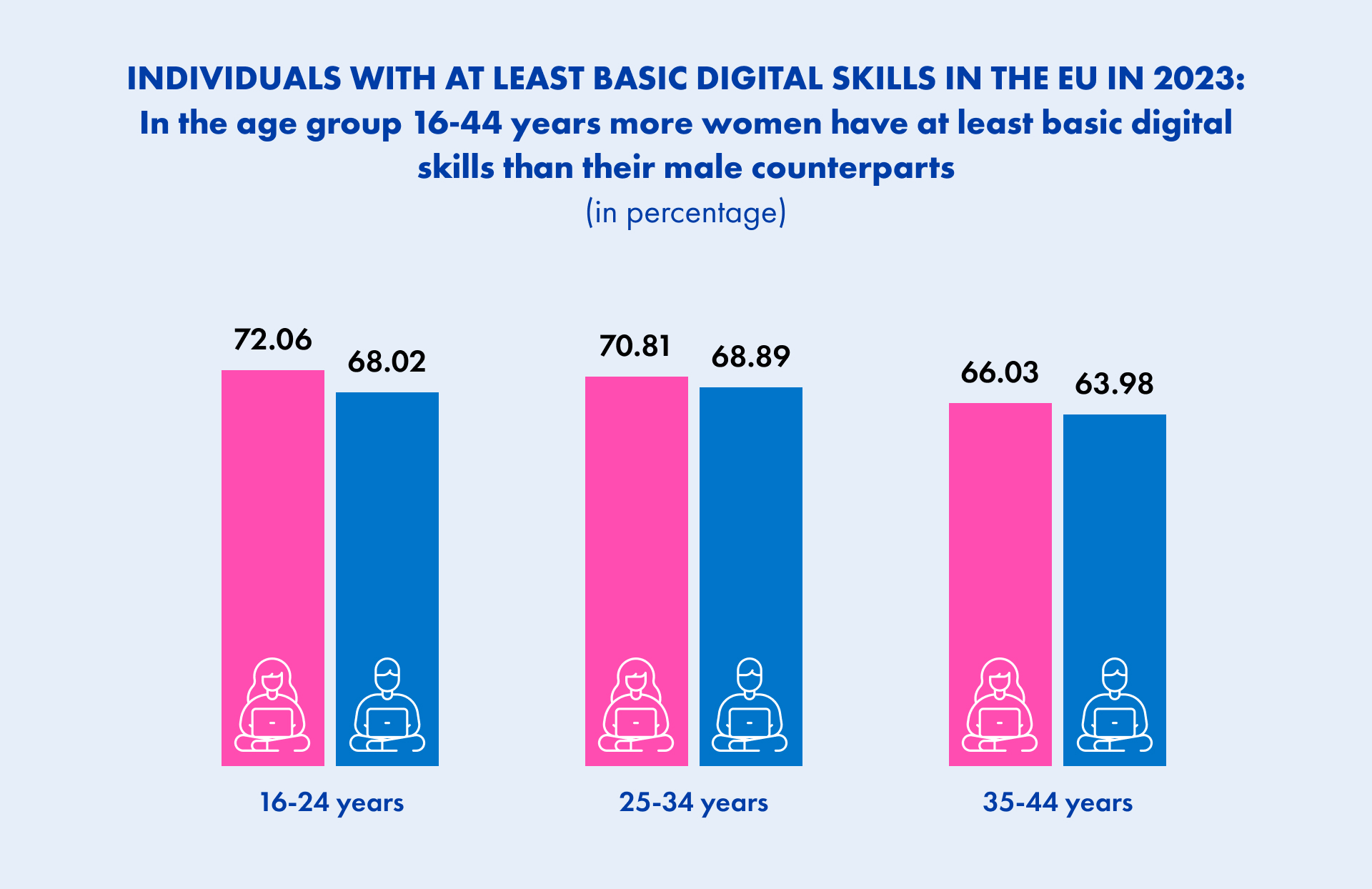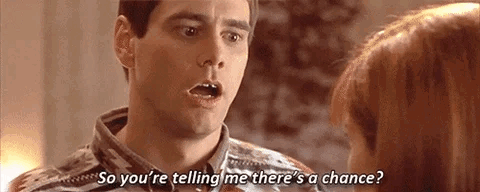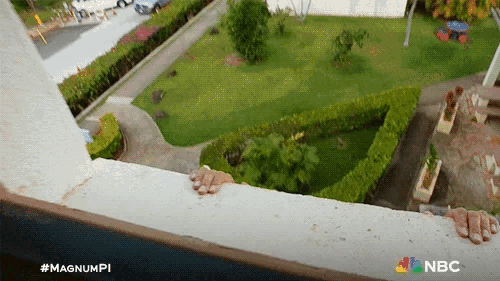Issue #157
Guten Morgen! The Munich Security Conference may have ended, but discussions on international security persist. Welcome to this edition of Krautshell, where we delve into global politics and regulatory frameworks. In this edition, we explore tech regulation concerns highlighted in the Munich Security Report and Germany’s digital transformation under the Online Access Act 2.0. Additionally, Ursula von der Leyen’s bid for a second term as EU Commission President and British politics, including responses to Russian actions and electoral challenges, take the spotlight, while Dr. Steven E. Sokol of the American Council on Germany shares his conclusions from this year’s MSC. Lastly, in this week’s WOOM, Charlie discusses the UK Conservative Government’s electoral hurdles as they trail behind Labour, aiming for a potential turnaround before the general election. So, grab your favorite beverage and join us as we unravel these pressing issues, offering insights into today’s political and regulatory landscapes. Are you ready to dive in? Anna Szilvia WHAT TO WATCH THIS WEEK: Growing concern here, voluntary self-regulation there – does it fit? The Munich Security Report (MSR) highlights the growing trend of exploiting technological advances for alternative motives, which not only limits potential progress but also hinders opportunities for prosperity: What was once seen as a catalyst for mutual globalization has now become a competition for geopolitical supremacy with China and the US as tech spies. While the EU is concerned about the potential threat to European citizens’ data from unregulated digital spaces, US policymakers fear the negative impact of regulations on their technology sector. The MSR also praises the EU’s recently passed AI law and the Bletchley Park Declaration. In response to the urgent need for regulation in the area of key digital technologies, tech companies took “action” during the Munich Security Conference: twenty tech giants, including Meta, Microsoft, Adobe, Google, Open AI, TikTok and X, signed the “Tech Accord to Combat Deceptive Use of AI in 2024 Elections”. They commit to developing tools to detect and prevent harmful AI-generated content that aims to mislead voters, launch awareness campaigns and ensure transparency. In addition, they are committed to working with civil society organizations and academia. Then all is well. Isn’t it? REGULATORY INSIGHTS: From Zero to Hero? Germany’s Traffic Light Coalition Races Toward Digital Transformation with Online Access Act 2.0 The German traffic light coalition has agreed on the Online Access Act 2.0 (OZG 2.0), aiming to facilitate most administrative tasks online by 2028, with citizens able to legally enforce this right. However, there’s criticism of slow administrative digitization and gaps in the current law. The Federal Ministry of the Interior must set online access standards within two years. The use of a central federal account (Bund-ID) will be streamlined, with initial identification via electronic ID and subsequent biometric authentication. Security standards will align with online banking, and diverse payment methods including cash and digital options will be offered. Open standards and software are favored. Meanwhile, the Union faction seeks to revise the OZG, advocating for stronger bindingness, uniform digital-first principles, and penalties for non-compliance. They propose a platform-based public sector ecosystem and demand statutory rights for digital administrative services with defined technical standards. However, concerns arise over potential constitutional issues and the practical challenges of coordinating between federal, state, and local authorities. Either way, it’s difficult to imagine that ten years of backlog in administrative digitization can be overcome with the new legislation. THE BIG PICTURE: Keeping up with the Berlaymont: Ursula von der Leyen’s Second Term Bid – Economy and Security are In, Environment Ou Ursula von der Leyen has announced that she will seek a second term as president of the European Commission, grabbing onto the crown of the arguably most important institution in Brussels. We can only guess that her decision to live on the 13th floor of the Berlaymont rather than keeping a home outside of the Commission HQ has made her feel at home. As von der Leyen announced her bid for another 5 years in office, she was clear on her goal of making Europe more “competitive”. Using the common EU-bubble language, this would be translated into her intending to shift her focus away from the Green Deal and instead focus on the classics of economy and security. With the latest convoys of tractors entering European capitals protesting against the rules implementing the policies of the Green Deal, and with the President of her political family EPP allegedly blackmailing lawmakers to vote against the Nature Restoration Law, von der Leyen has a complicated relationship with her environmental legacy. At the same time, Europeans are worried about the economic instability, Russia’s war against Ukraine is still ongoing, and Donald Trump has threatened to abandon NATO allies. Von der Leyen’s shift of focus is therefore not as surprising as it may seem at first glance. Rather, it reflects the reality both she and Europe are met with. Ahead of the 2014 elections, the Parliament introduced the principle of lead candidates, also known as “Spitzenkandidaten”. This means that the largest European political party following the elections would earn the right to put a candidate forward for the Commission presidency on the Parliament’s behalf. Despite von der Leyen announcing her bid, she has not been formally nominated as her party’s Spitzenkandidaten. This will take place in a vote at the EPP’s electoral congress in March. After that, a long process in true EU bureaucracy spirit begins to determine whether von der Leyen will continue to live on the 13th floor of the Berlaymont or not. Events on foreign shores have been dominating British politics this week. The death of Russian Opposition leader Alexei Navalny has prompted questions to the British Government, and the wider west, about what more can be done about Russian President Vladimir Putin. Foreign Secretary Lord Cameron discussed potential sanctions on offer with allies at the recent G7 foreign ministers meeting. While he avoided announcing anything ahead of the Prime Minister, there have been reports out of the Government that the UK is swiftly exploring options. Chancellor (the UK’s version of a finance minister) Jeremy Hunt MP raised the issue in a recent Cabinet meeting, but there has been some resistance from London bankers which is hindering plans to seize Russian central bank assets as they fear clients will become reluctant to invest in the UK. There has been an ongoing debate in Parliament on whether to call for an ‘immediate ceasefire’ in Gaza, a ‘humanitarian pause’ or a ‘permanent sustainable ceasefire’. In an attempt to avoid another rebellion in the Labour Party this week (which saw 53 MPs rebelling and 10 frontbenchers resigning over the last vote on Gaza), the House of Commons Speaker tried to please all sides and ended up burning them all (except for Labour), plunging Parliament into chaos. The fallout will continue over the next few days and could see the Speaker lose his role. Despite confirmation Britain entered a recession in the last quarter, government finances showed a large surplus in January. The surplus – the difference between spending and tax income – rose to £16.7 billion, double that recorded in January 2023, and keeps the Government’s desire for tax cuts alive. Tax cuts are seen as the Government’s last chance to win round voters before they hit the polls. However, other experts say while the figures represent a boost to the Chancellor’s accounts, they’re not big enough for, what is being labelled, a ‘Budget Bonanza’. Finally, out in the electorate, the Labour Opposition delivered significant setbacks to the Conservatives as they won two by-elections, adding to their cohort of MPs in Parliament. While the Conservatives did suffer the largest collapse in its vote ever recorded in a by-election, the numbers should be taken with a pinch of salt. Voter turnout was low, as expected in by-elections, but it may pose a wider trend about voter engagement ahead of the UK’s general election later this year. Source: ec.europa.eu Reflections on MSC 2024: Malaise and an Uncertain Future The Munich Security Conference is like a three-ring circus – and there is no way that any single participant can take in everything that is said. There is simply too much going on, between the speeches and panels on the main stage, the ever-increasing number of side events (some of which are strictly off-the-record and some of which are open to the public), and bilateral meetings. One has to pick and choose what to attend. If you are only going to watch the proceedings on the main stage, you might as well stay home and watch the live stream. The Munich Security Conference brings together heads of state, government official, elected leaders, CEOs, and leading thought-leaders from academia, the media, and the thinktank community. The magic of the MSC happens on the periphery – in the hallways of the cramped Bayerischer Hof, smaller invitation-only meetings, and the bilats. But, what one hears in these different surroundings can often be contradictory to the messaging from the main stage – and can make you feel like you are in an alternate reality. Going into the MSC 2024, there was a lot at stake – given the ongoing war in Ukraine and the open conflict in the Middle East, not to mention concerns over China/Taiwan and the major election year. The organizers of the 60th anniversary edition of the Conference also went to some effort to ensure that voices from the so-called “Global South” were included. Ukraine Was Top of Mind Russia’s war of aggression in Ukraine was at the top of the agenda in almost every session I participated in. Close seconds were the call for Europe to do more, concerns over the upcoming U.S. election, and questions around the reliability of the transatlantic partnership. Two developments cast a pall over the conference before it even began: Former U.S. President Donald Trump’s comments from the campaign trail that if reelected he would let the Russians “do whatever the hell they want” to NATO allies not paying enough for defense and the prospect of a second Trump administration were recurring themes. Russia was not invited to the MSC but the news of the death of Russian opposition leader Alexei Navalny in prison – which hit just an hour before the official start of the conference – ensured that everyone was talking about Russia and Putin (as if that would not have been the case anyway). And if Ukrainian President Volodymyr Zelensky’s appeal from support from the main stage was not enough, the news of Ukraine’s withdrawal from Avdiivka on Saturday morning should have hammered home the urgency of the situation for Ukraine. The need for military support is greater than ever – and support from the West is sluggish at best. As I heard in more than one session: If there is one take away, it is “ammunition, ammunition, ammunition.” Ukrainian forces need more munitions in order to hold what they have and to push back Russian forces. Falling Short… Through no fault of the organizers, the 60th edition of the Munich Security Conference fell short – given the high stakes. The MSC in 2022 was characterized by denial. Despite strong warnings from the United States, European leaders did not want to believe Putin would ramp up his attack on Ukraine. Just days after the MSC ended, on February 24, 2022 – two years ago today! – Russia began its bitter and bloody invasion. Many thought Kiev would capitulate in weeks if not days. The national will and capabilities of the Ukrainians was severely underestimated by Moscow and the West. A year later, at the MSC in 2023, there was a strong show of solidarity as Western partners made the commitment to stand by Ukraine “for as long as it takes.” But, coming back from MSC 2024 I feel underwhelmed and disappointed. I failed to see a sense of urgency and any clarity about the path forward. I was hoping for a strong sign of European solidarity. France was conspicuous in its absence. Despite a series of bilateral agreements, I missed a strong show of support by the Weimar Triangle. Europe is pushing the United States to get through its funding roadblocks but also is fearing and preparing for less U.S. engagement. The MSC would have been the ideal platform for a show of leadership. Instead, coming out of the MSC Ukraine feels left alone and without strong support from the West. There is no doubt, Germany has come a long way in the past 24 months. But that does not mean that Germany can rest on its laurels. Germany and Europe need to step up and do more. It seems as though Germany is no longer calling defense spending at 2 percent of GDP into question. At this point, it is not ‘if’ but ‘how.’ That’s not enough. And to be fair, the failure of the U.S. House of Representatives to pass funding for Ukraine, whose support to defend itself (and Europe) from Russia, is also a severe lack of leadership, that rightfully raises concerns in Europe about U.S. commitments in the future. Where Do We Go from Here? At the conference there was a lot of handwringing about a possible second Trump administration – and what that would mean for the future of the transatlantic relationship and for Ukraine. Very few people spoke out that Europe should just get on with it and step up – regardless of who wins in the U.S. in November. We need more than rhetoric. This is again a defining moment that demands action. We must help Ukraine win because it is in our shared interest in Europe and the United States that Russia be defeated. The U.S. remains an indispensable power in Europe. We can only hope that Washington will remain committed to Europe but Europe cannot wait until November to take steps to show leadership and strength. Here are three appointments for next week that you should have on your radar: IT AIN’T OVER TILL IT’S OVER The electoral landscape in the United Kingdom presents a mammoth challenge for the Conservative Government. They are trailing 20 points behind Labour in the polls, have suffered a series of recent by-election defeats, and are grappling with a sluggish economy and ongoing challenges delivering key immigration and health commitments; so, a defeat at the upcoming general election seems almost inevitable. But if a week is a long time in politics, a general election expected to take place in the Autumn is almost an eternity away. Is this enough time for Prime Minister Rishi Sunak to turn things around? The odds are slim but not nil, with the prospects of an economic uptick planting green shoots of hope amongst the Conservatives. The Bank of England has indicated interest rates will come down, and the Government is reportedly looking underneath every couch cushion to fund further tax cuts at the March Budget in the hope Brits vote with their wallets. At times they also seemed to be helped by Labour who, despite best efforts to portray itself as the boring and reliable party after 14 years of Conservative chaos, continue to take every opportunity for self-inflicted damage. As well as betting on a reversal of economic fortunes, the Prime Minister will hope there is enough lingering doubt about Labour amongst voters to give them pause for thought in the voting booth. Even if the Prime Minister has to limp over the finish line, a win is a win. But, in addition to fending off competition from Labour and the disruptive Reform Party, one of the biggest threats to his premiership comes from within his own party. The prospect of a chaotic leadership change in an election year seems to have quelled any overt rebellion from the backbenches for now, although things are still teetering on the edge. If the local elections in May result in a defeat for conservatives, it could be an early game over for Sunak. Issue #157


FIRST, SOME SOLID INTEL:
AND WHAT’S UP IN GREAT BRITAIN?
TAKE A BREAK, GIVE YOUR EYES A REST:

THE (GUEST) HOUSE’S VIEW:
LONG STORY SHORT:
OUTLOOK:
When?
What?
February 26th & 29th, 2024
WTO's 13th Ministerial Conference in Abu Dhabi
February 26th & 29th, 2024
Mobile World Congress in Barcelona
February 28th, 2024
Yulia Navalnaya addresses the European Parliament
WHAT’S ON OUR MINDS:





